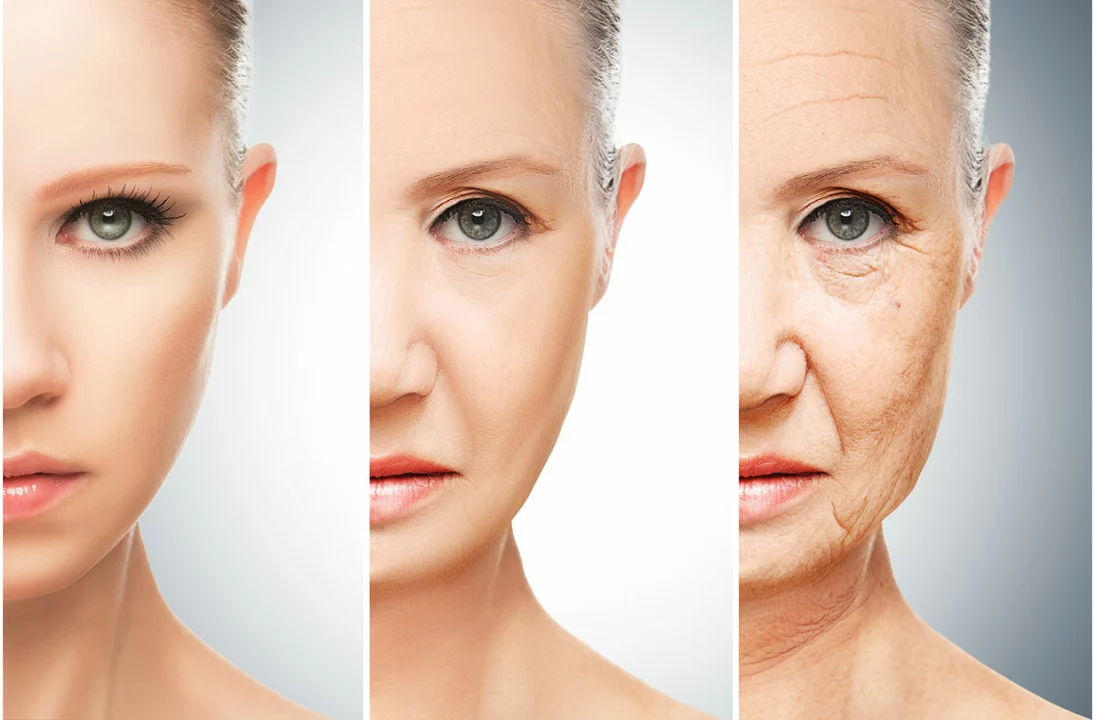Age-related skin concerns — simple, practical care
As skin gets older it often becomes drier, thinner, more fragile, and slower to repair. You might notice fine lines, deeper wrinkles, brown spots, redness, or skin that bruises easily. The good news: small changes in routine and a few targeted products can make skin look and feel better. Below are clear, useful steps you can use today.
Everyday routine that helps
Mornings: use a gentle cleanser that won’t strip oils. Apply a vitamin C serum to help even tone and protect against sun damage. Follow with a moisturizer containing hyaluronic acid or ceramides to lock in moisture. Finish with a broad‑spectrum sunscreen of at least SPF 30. Sunscreen prevents new age spots and slows wrinkle formation.
Nights: cleanse gently, then use a retinoid or retinol a few times a week to improve texture and reduce fine lines. Start slowly—two nights a week—and increase as your skin tolerates it. After the retinoid, use a richer moisturizer or an ointment on very dry areas to help repair the skin barrier while you sleep.
Hydration and diet matter. Drink water, eat protein, healthy fats, and colorful vegetables. Omega‑3 rich foods (like salmon or walnuts) help skin retain moisture. Avoid heavy alcohol and quit smoking if you can—smoking speeds skin aging and makes lines worse.
Be gentle. Skip harsh scrubs and hot long showers. Use lukewarm water and soft towels. When applying products, press them in instead of rubbing hard. If you use exfoliants like AHA/BHA, limit them to once or twice a week to avoid thinning or irritating aging skin.
Targeted fixes and pro treatments
For age spots, short courses of topical agents (hydroquinone alternatives, azelaic acid) or in-office treatments like chemical peels and IPL can help. For deeper lines, dermal fillers or neuromodulators (Botox) smooth contours quickly. Laser resurfacing and microneedling boost collagen but need recovery time—talk to a certified dermatologist about risks and downtime.
Patch test new actives. If you have sensitive or reactive skin, try a small area first. When using prescription-strength retinoids or bleaching agents, follow your doctor’s instructions and use sunscreen daily.
Watch for warning signs. See a dermatologist if a spot changes shape, color, bleeds, or won’t heal. Also seek care for sudden swelling, painful lumps, or severe redness. Those aren’t just cosmetic issues—they can be signs that need medical attention.
Small, consistent steps beat quick fixes. A gentle routine, sunscreen every day, targeted active ingredients used correctly, and professional advice when needed will keep aging skin healthier and more comfortable. Start with one change this week—sunscreen, a richer moisturizer, or lowering your shower temperature—and build from there.

Hydroquinone and the aging process: Can it help with age-related skin concerns?
In my recent exploration of skincare, I've stumbled upon hydroquinone, an ingredient that may help with age-related skin concerns. As I delved deeper, I discovered that hydroquinone is known for its ability to lighten dark spots and even out skin tone, making it a popular choice for those battling hyperpigmentation. Additionally, it may help in reducing the appearance of fine lines and wrinkles. However, it's crucial to consult a dermatologist before incorporating hydroquinone into your skincare routine, as it can cause side effects if not used correctly. All in all, hydroquinone could be a game changer for those of us looking to combat the signs of aging, but it's essential to use it responsibly and under professional guidance.
April 29 2023